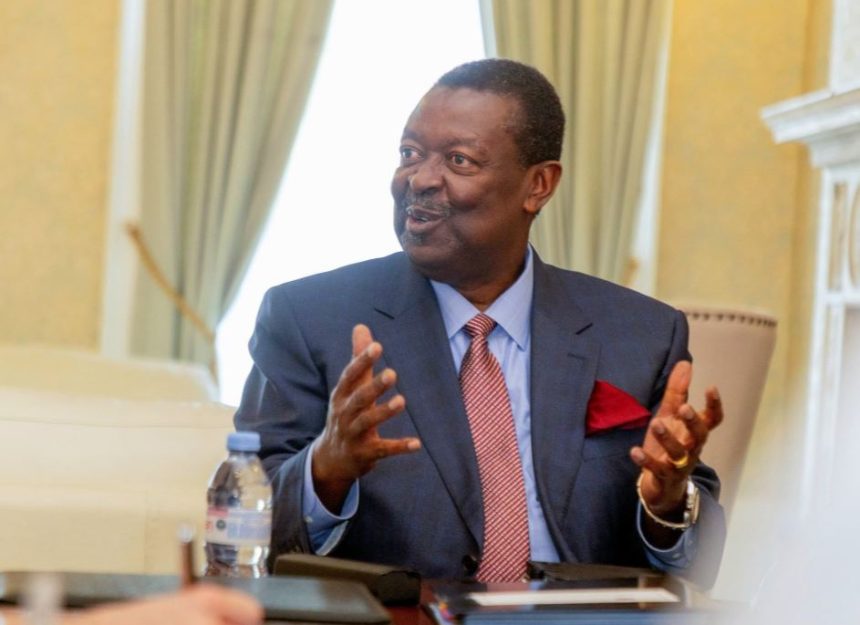
The Kenyan government has issued a formal diplomatic response to 12 foreign
missions that recently called for peaceful demonstrations and state
accountability ahead of nationwide protests scheduled for Wednesday.
In a detailed note dated June 24, the Ministry
of Foreign and Diaspora Affairs addressed the envoys' joint statement, which
had been posted publicly on social media by ambassadors and high commissioners
from Germany, the Netherlands, Denmark, Ireland, Australia, Switzerland,
Norway, Canada, the United Kingdom, the United States, Sweden, and Finland.
The ministry reaffirmed that “the rights to
peaceful assembly and freedom of expression remain a protected pillar of
Kenya’s constitutional democracy,” but emphasized that these rights are not
absolute and must be exercised “peacefully, within the law and with full regard
for the rights of others.”
While the government acknowledged the concerns
raised, particularly regarding the conduct of security forces, it also warned
against statements that may be perceived as interference in domestic affairs.
“Kenya welcomes every partner in the global democratic project but cautions
against expressions that may be interpreted as attempts to influence the
country’s domestic political affairs,” the ministry stated.
The ministry said the responsibility to
protect Kenya’s democracy, lives, and property “lies squarely with the State”
and must be exercised with “restraint, legality, and care”.
It further noted that all law
enforcement operations are subject to oversight by independent institutions
including Parliament, the Judiciary, and constitutional commissions.
“The Ministry acknowledges concerns raised
about certain policing methods and wishes to assure our partners that any
violations, if established, are addressed through our institutions,” the
statement read.
In a pointed reminder, the ministry urged
foreign diplomats to conduct their affairs “in line with the Vienna Convention
on Diplomatic Relations” which outlines the limits of diplomatic engagement and
prohibits interference in the internal matters of host states.
It asked the missions to express their concerns through official diplomatic
channels rather than public statements.
The statement also reaffirmed Kenya’s
commitment to democratic governance, describing its journey as “complex and
continuous”.
While welcoming collaboration and
partnership, the ministry stressed that this must happen “with mutual respect
for sovereignty”.
The diplomatic exchange comes amid rising
political tensions in Kenya.
The planned June 26 demonstrations mark one year since the deadly 2024
protests sparked by public outrage over the Finance Bill, which introduced several
unpopular tax measures.
Those protests turned violent, with independent groups reporting over 61
deaths, while official government figures placed the number at 42.
In their joint statement, the foreign envoys
had voiced concern over policing tactics during past protests—specifically the
deployment of plainclothes officers in unmarked vehicles, a practice already
declared unlawful by Kenya’s High Court.
“The use of plain clothes officers in
unmarked vehicles erodes public trust and was ruled unlawful,” the diplomats
said.
They also called for independent and
transparent investigations into any violence directed at peaceful demonstrators
and condemned reports of hired groups infiltrating or disrupting otherwise
peaceful gatherings.
The diplomats argued that “transparency and
accountability are essential for restoring confidence in public institutions,”
and stressed that civic space must be protected as a key part of democratic
governance.
In its response, the government maintained
that it is fully committed to safeguarding civil liberties but emphasized that
demonstrations must be peaceful and lawful.
The ministry added that all policing actions are subject to institutional
checks and legal review.
While tensions ahead of Wednesday’s protests
continue to mount, the exchange between the Kenyan government and the foreign
missions highlights the delicate balance between respecting domestic
sovereignty and upholding universal democratic values.
The government's response appears to be an effort to assert its authority
while managing growing domestic and international scrutiny over how it handles
public dissent.
With
protests expected across major cities, Wednesday stands out as a critical test
of both Kenya’s security response and its commitment to constitutional freedoms.












